Time was when people used to brag about how old they were — and I am old enough to remember it.
Thomas Sowell, “Random Thoughts,” from his Creators Syndicate column.
Categories
Thomas Sowell
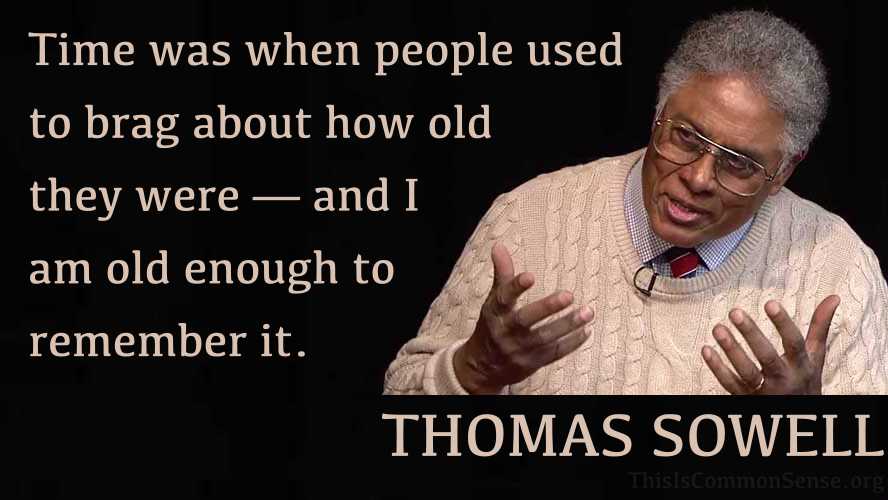

Time was when people used to brag about how old they were — and I am old enough to remember it.
Thomas Sowell, “Random Thoughts,” from his Creators Syndicate column.
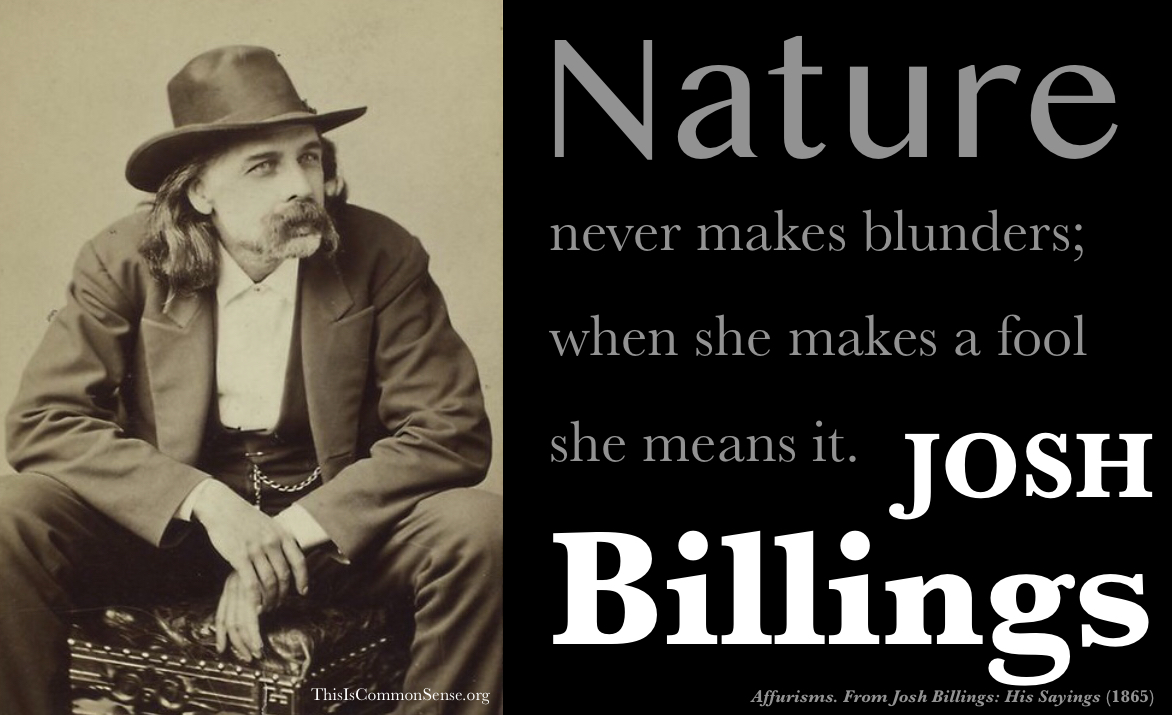
Nature never makes blunders; when she makes a fool she means it.
Affurisms. From Josh Billings: His Sayings (1865).
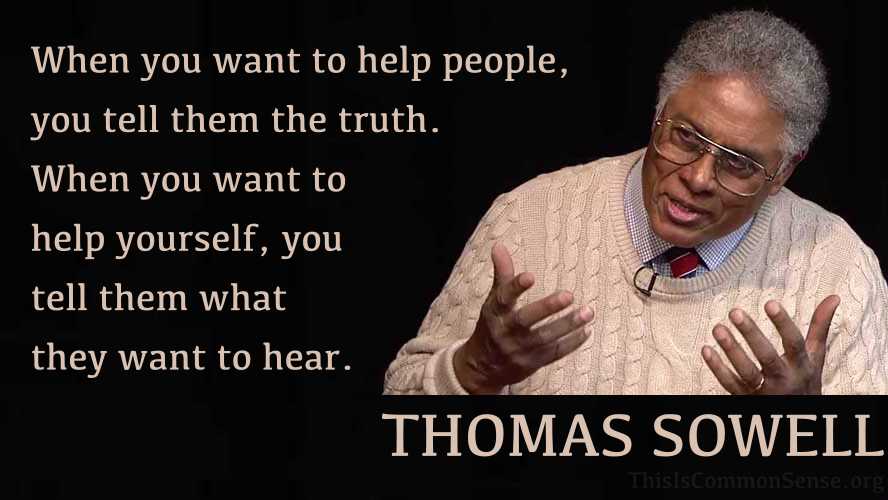
When you want to help people, you tell them the truth. When you want to help yourself, you tell them what they want to hear.
Thomas Sowell, “Random Thoughts,” from his Creators Syndicate column.
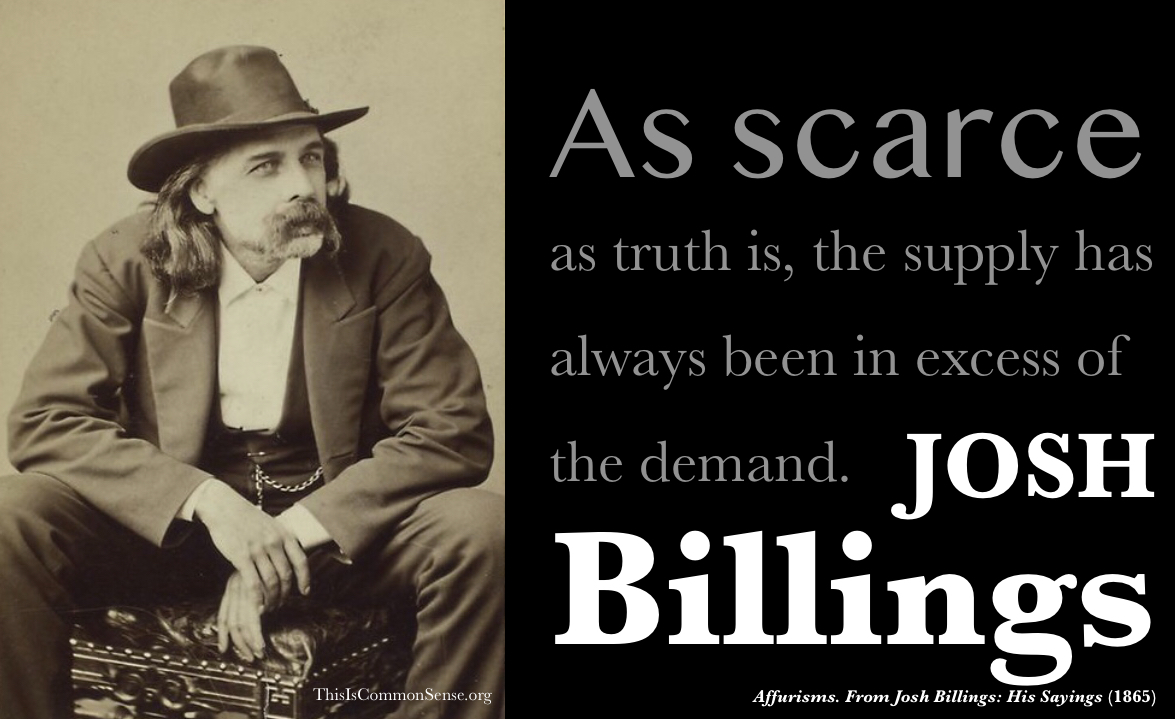
As scarce as truth is, the supply has always been in excess of the demand.
Affurisms. From Josh Billings: His Sayings (1865).
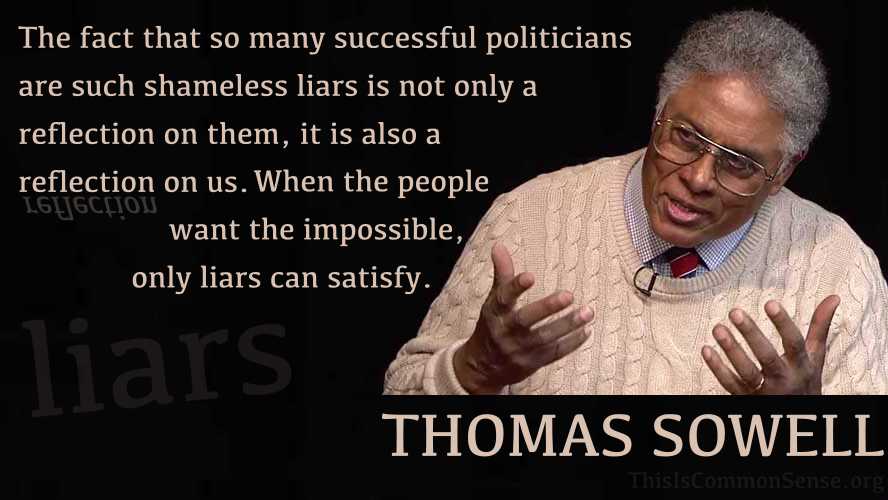
The fact that so many successful politicians are such shameless liars is not only a reflection on them, it is also a reflection on us. When the people want the impossible, only liars can satisfy.
Thomas Sowell, “Big Lies in Politics” (Townhall, July 31, 2012).
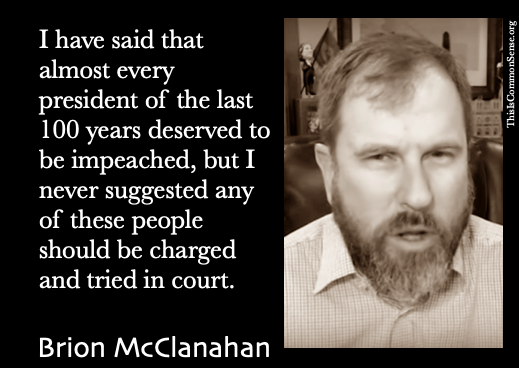
I have said that almost every president of the last 100 years deserved to be impeached, but I never suggested any of these people should be charged and tried in court.
Brion McClanahan, “What’s at Stake in the Trump Immunity Case?” May 8, 2024.